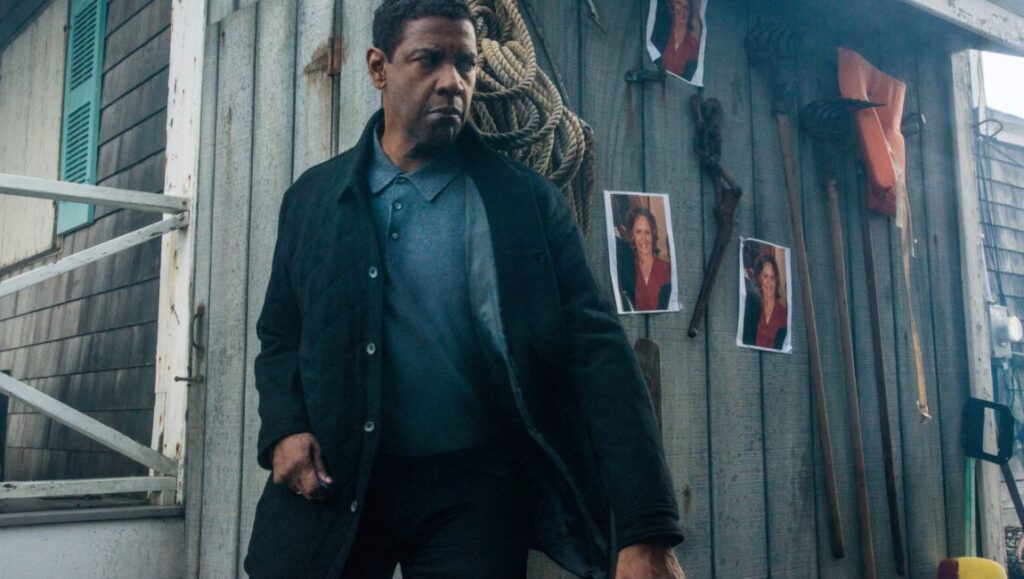The Equalizer provided a perfectly serviceable delivery device for bloody violence. The 2014 film starred Denzel Washington as former C.I.A. assassin-turned-neighborhood do-gooder Robert McCall, who memorably carved up, blew up, dismembered, or otherwise mangled a dozen or so bad guys in a hardware store during the film’s climax, all guided by the mostly competent if unspectacular action hand of Washington’s longtime collaborator, Antoine Fuqua. It was a simple premise, a flimsy clothesline for tough-talk and murder, but the star’s charisma and the script’s serious mean streak elevated it (barely) above the level of the amusingly schlocky ’80s television series it was based on.
In The Equalizer 2, McCall (still Washington) is now a Lyft driver, an occupation he uses to discover random citizens who have problems he might be able to solve, including an elderly Holocaust survivor who’s searching for stolen property; a young sex worker who’s been beaten by her tricks; and, improbably, a woman whose daughter has been kidnapped and brought to Turkey. But although these little side-trips take up the bulk of the film’s first hour, they’re merely a prologue. Eventually, McCall has to get revenge for the murder of his “only friend,” a politico/spook played by Melissa Leo. This plot-line plays out in the most perfunctory way possible; it’s endlessly padded, features the most obvious villain possible, and offers scarcely anything in the way of gratuitous bloodletting until the last possible opportunity. And that’s to say nothing of the interminable subplot that finds McCall trying to rescue a local boy from the clutches of scary gang-banging drug dealers, something so completely, crushingly banal it might have been lifted straight from a thirty-year-old TV movie. He literally tells the young man to “Stay off them corners.”
Attempts to add some sort of pathos to Washington’s character, or create some sort of uplifting emotional situation from a premise about a righteous revenger, seem just as transparently pandering as the flimsy excuses offered for the (still appreciated) violence.
Only in the finale, in which McCall takes out a handful of guys in a hurricane-whipped coastal village, does Fuqua ever approximate the delirious bloodlust of his first Equalizer film — even if his junky CGI backdrops and lack of imagination (three of the four guys merely get stabbed…a little variety would be nice) render the whole thing kind of cheap-looking. Attempts to add some sort of pathos to Washington’s character, or create some sort of uplifting emotional situation from a premise about a righteous revenger, seem just as transparently pandering as the flimsy excuses offered for the (still appreciated) violence. Except that there’s something disingenuous and apologetic about the former, almost chastising you for enjoying what few lizard brain thrills are on offer here.


Comments are closed.